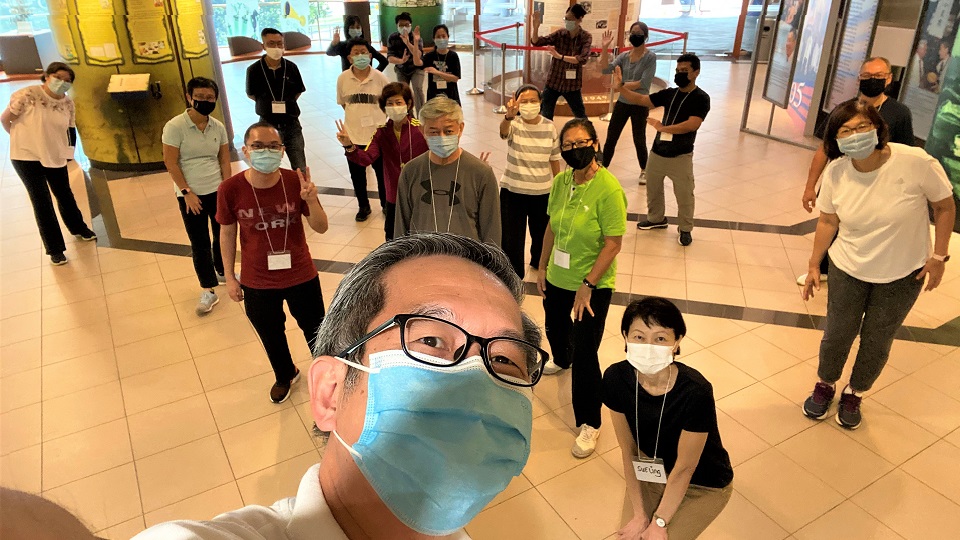For Associate Professor Lau Tang Ching, NUS Medicine Vice-Dean (Education), his affinity with Tai Chi (colloquially known as shadowboxing) started at a young age. When Dr Lau was nine, his father, a Tai Chi enthusiast, introduced him to the traditional Chinese martial art at the Kallang Community Centre.
Not only did that spark his lifelong passion for Tai Chi, it also awakened his interest in other martial arts such as Shaolin Kung Fu and Tán Tuǐ, which he practised until entering National Service. In 2007, Dr Lau’s fondness for Tai Chi was reignited and took on professional relevance. It was during that time that Dr Lau, currently Senior Consultant at the National University Hospital Division of Rheumatology, discovered increasing evidence of Tai Chi’s health benefits. Inspired to introduce these traditional moves to the public, he started teaching Tai Chi exercise as part of the Continuing Education and Training programme at the NUS School of Continuing and Lifelong Education (SCALE).
The SkillsFuture-funded course aims to train Tai Chi exercise instructors, so that more people can benefit from the practice of this exercise. The two-day workshop (approximately seven hours per day), as well as an online prep course of between 10 to 20 hours of self-learning and practice, introduce attendees to the basics of arthritis and dementia; how Tai Chi can benefit people with such ailments; and its usefulness in preventing falls. Participants will also learn how to teach Tai Chi in a safe, effective and fun way.
 Assoc Prof Lau (front) teaching Tai Chi at NUS SCALE
Assoc Prof Lau (front) teaching Tai Chi at NUS SCALE
Dr Lau shared that Tai Chi helps in the strengthening of muscles, and improving one’s sense of balance and flexibility. As a rheumatologist specialising in knee osteoarthritis and fracture prevention, these benefits resonated with his medical specialties. This led him to join the Tai Chi for Health Institute, which was founded in 2010, with the purpose of empowering people to improve their health and wellness through Tai Chi. Dr Lau is currently the Chairman of the institute.
“The science behind the medical benefits of Tai Chi exercise is relatively straightforward. By improving an individual’s muscle tone and sense of balance, the sport helps to lower the risk of falls,” said Dr Lau.
He added that in the same way, it helps to prevent osteoarthritis – a condition caused by the weakening of the muscles – which leaves the joints vulnerable to damage, resulting in accelerated wear and tear. Tai Chi exercise can help to stave off this condition by strengthening the muscles and improving flexibility, making the joints healthier. Participants who regularly perform Tai Chi 2 - 3 times per week, typically see benefits after 3 - 6 months. Practising Tai Chi also cultivates a sense of calmness through its required focus, improving mental and emotional well-being.
Dr Lau is heartened to do his part in caring for an ageing population through encouraging an active lifestyle. “Exercise is the best medicine, and Tai Chi is one excellent form of exercise,” he affirmed.
For more information on Dr Lau’s Tai Chi for Memory and Tai Chi for Arthritis and Fall Prevention courses at NUS SCALE, please click here.